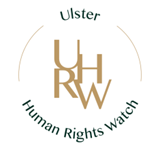Ulster Human Rights Watch will ask whether interim payments can be made to victims before Christmas.
A victims’ group is seeking a meeting with Justice Minister Naomi Long over a payment scheme for the injured.
Ms Long has warned it could take up to 18 months before payments are made, as well as estimating the cost of the scheme at £800 million.
The figure has been questioned by some, including the Wave Trauma Centre, whose chief executive, Sandra Peake, said the majority of those who will qualify for the payments were injured during the 1970s and 1980s and “few will still be receiving a pension in 30 years’ time”.
In July the Executive Office estimated the scheme would cost £165 million.
Ulster Human Rights Watch (UHRW) is set to ask Ms Long whether interim payments can be made to victims before Christmas.
UHRW advocacy manager Axel Schmidt described the 18-month wait for payments as “hard to fathom”, adding that many innocent victims will be “further disappointed and incensed”.
“Why will it take so long? Surely the minister and her senior civil servants have put all the necessary building blocks in place so that further unnecessary and bureaucratic delays can be avoided?” he said.
“Ulster Human Rights Watch would like to think the Justice Department could open a dedicated section within the department to fast-track applications, assess claimants suffering from psychological conditions such as PTSD, and get payments made a lot sooner than 18 months.”
Mr Schmidt said he also has questions about the funding of the scheme, the Victims’ Payment Board and government guidance.
“We know the minister is sympathetic to the plight of innocent victims,” he said.
“Surely, it is possible for the department to set up an interim payment process where victims could be awarded a one-off sum of £2,000, which could be paid before Christmas.
“Such a gesture would be well received and be a tangible demonstration of goodwill and understanding towards victims.”
The scheme was due to open for applications at the end of May but was held up over disagreement around who should qualify for the payments and whether Westminster or Stormont should pay for it.
The Stormont Executive was forced to move to nominate a department to administer the scheme following a High Court ruling last week that the ongoing delay was unlawful.
Deputy First Minister Michelle O’Neill was highly criticised by the judge for refusing comply with a legislative requirement to set up the scheme to gain political leverage over the UK Government.
The joint legal challenge was brought by Jennifer McNern, who lost both legs in a Troubles bombing in 1972, and Brian Turley, one of the “hooded men” who were arrested and interrogated by the British Army in 1971.
Click here for Newsletter article
Click here for Belfast Telegraph article
